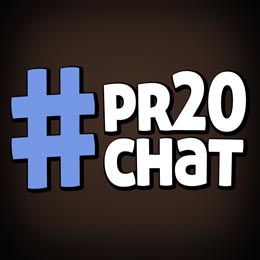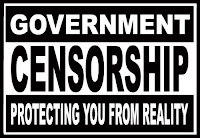Identifying Brand Influencers
Like I said in my previous post, I would be covering a #pr20chat's discussion about identifying influencers. I would be answering four question in brief paragraphs below.
Q1: Does the definition of influence change for each client or campaign? Should it? How so or why not? I do not believe that the definition of influence changes. However, I believe that metrics of finding such influencers do change. The end goal is always the same; it is how you get there that is different. Also, your audience is the driving force in finding and attributing influence in a person about a particular topic and not the client.
Q2: How does context factor into influencer research? Yes, context is important in any kind of research. The purpose of the campaign and the target audience is important in carrying out an influencer research. Like I said earlier, the audience is the driving force, fullstop. Never underestimate, undermine, overlook or lose sight of who the audience is. By understanding the audience, you know what or who drives and motivates them. And by understanding the campaign, you realize what range of topics you would need a mastery of from your influencers. Your audience is a great platform to find influencers, talk to them. You just need to identify one influencer in order to get the rest. Why you ask? Because influencers always have a community of their own. Like they say, like-minded folks roll together.
Q3: How are companies finding influencers now? Do you think this will change in the future? There are two angles to influencer research: offline and online digging. Never rely on one to the detriment of the other. A lot of companies uses online measuring platforms like Klout, blogroll, Google, traackr etc but also employ manual approach. Talking your audience can really never be overemphasized, really.
Q4: How should companies value influencers? Should they be rewarded? A lot of folks had/have problem with the issue of rewarding and it is one I say tread carefully. I would equate this dilemma as the same as rewarding journalist. Does such reward interfere with free flow of information? That is something a company or PR agency might want to stew on. However, perks are rewards too and you would need to give your influencers perks in order to test and validate the effectiveness of the product.
Now, I have to deviate a bit and explain the difference between an ambassador and an influencer. An ambassador is an influencer but an influencer isn't necessarily an ambassador. Although, there is a possibility that an influencer can become an ambassador. An ambassador has utmost loyalty and connection to a brand while an influencer does not.
Q1: Does the definition of influence change for each client or campaign? Should it? How so or why not? I do not believe that the definition of influence changes. However, I believe that metrics of finding such influencers do change. The end goal is always the same; it is how you get there that is different. Also, your audience is the driving force in finding and attributing influence in a person about a particular topic and not the client.
Q2: How does context factor into influencer research? Yes, context is important in any kind of research. The purpose of the campaign and the target audience is important in carrying out an influencer research. Like I said earlier, the audience is the driving force, fullstop. Never underestimate, undermine, overlook or lose sight of who the audience is. By understanding the audience, you know what or who drives and motivates them. And by understanding the campaign, you realize what range of topics you would need a mastery of from your influencers. Your audience is a great platform to find influencers, talk to them. You just need to identify one influencer in order to get the rest. Why you ask? Because influencers always have a community of their own. Like they say, like-minded folks roll together.
Q3: How are companies finding influencers now? Do you think this will change in the future? There are two angles to influencer research: offline and online digging. Never rely on one to the detriment of the other. A lot of companies uses online measuring platforms like Klout, blogroll, Google, traackr etc but also employ manual approach. Talking your audience can really never be overemphasized, really.
Q4: How should companies value influencers? Should they be rewarded? A lot of folks had/have problem with the issue of rewarding and it is one I say tread carefully. I would equate this dilemma as the same as rewarding journalist. Does such reward interfere with free flow of information? That is something a company or PR agency might want to stew on. However, perks are rewards too and you would need to give your influencers perks in order to test and validate the effectiveness of the product.
Now, I have to deviate a bit and explain the difference between an ambassador and an influencer. An ambassador is an influencer but an influencer isn't necessarily an ambassador. Although, there is a possibility that an influencer can become an ambassador. An ambassador has utmost loyalty and connection to a brand while an influencer does not.


Comments
Post a Comment